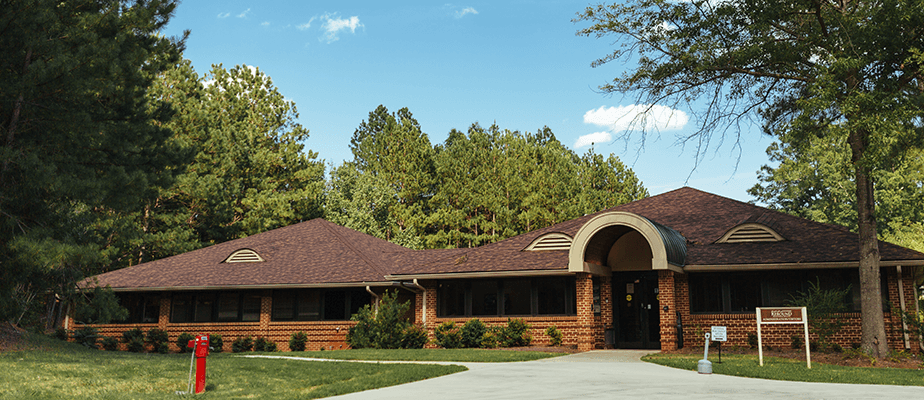Rebound Behavioral Health Hospital helps adults struggling with alcohol abuse and addiction build a strong foundation for long-term recovery. Serving South Carolina, Rebound is a trusted provider of substance abuse rehab.
About Alcohol Abuse
Learn More About Alcohol Addiction & Treatment at Rebound Behavioral Health
Alcoholism is a chronic, life-long condition that involves prolonged alcohol use in spite of the negative consequences it can cause to your health and in your personal relationships and occupational functioning. If you’re struggling with alcoholism or alcohol abuse, you probably have tried to cut back on your drinking, only to go through withdrawal symptoms and take up drinking again. You may have begun to notice the health consequences of chronic drinking, but feel powerless to stop. Work and interpersonal relationships may have begun to dwindle as you regularly neglect to meet your responsibilities. You may feel hopeless, that recovery from your alcohol addiction is not possible – that you’re doomed to be an alcoholic for the rest of your life.
Our alcohol addiction treatment center in Lancaster, SC is here to tell you that recovery is possible. We’ve helped countless men and women successfully detox and learn the tools necessary to lead a sober, happy, and productive life. We offer a variety of levels of care for alcoholism, including inpatient stabilization and detox as well as outpatient treatment, to best meet your recovery needs.
How to Help a Loved One
Helping a Loved One Get Treatment for Alcohol Addiction
If you’re watching your loved one spiral downward, displaying the symptoms of alcohol abuse, you probably feel terrified and helpless; unsure how to help your loved one or if there is anything you can do to help. You may have watched him or her try to overcome the addiction to alcohol many times before, and you fear that each time you see your loved one, it may be your last. It’s time to take action. Here are some tips for helping your loved one enter an inpatient addiction treatment program for alcoholism:
Learn about alcohol addiction: Alcohol addiction is a disease that requires constant management, treatment at a dedicated alcohol rehab center, and medication. The more you learn about addiction, the struggles an addict faces, and how hard it is to overcome this disease, the better equipped you will be to help him or her. Attend an A.A. meeting to learn more about what life as a recovering addict is like.
Offer support: It is important that you not judge your loved one, but instead offer unconditional support. An addict does not choose to be an addict; addiction recovery isn’t simply a matter of “getting over it.” Listen and support your loved one, reassure them that you love them, and offer your reasons why seeking rehab at a treatment center for alcohol recovery is a great first step toward sobriety. Offer support, not ultimatums.
Listen openly: At first your loved one may be hesitant to open up about his or her feelings and experiences, but be patient. He or she may feel ashamed of his or her behavior and find it challenging to talk openly. Reassure your loved one that you love them no matter what they say and that you really want to know how things are going for them. Gently suggest that an inpatient treatment center can help your loved one reclaim the life he or she wants to live.
Why Consider Treatment
Why Consider Inpatient Treatment for Alcohol Addiction at Rebound Behavioral Health
If you’ve been living as an alcoholic for a long period of time, you’re probably noticing the ways in which drinking has hurt your life. You may have lost your relationships with a loved one, gotten into legal trouble for behavior while you were intoxicated, and may be facing the challenges of risky behaviors you engaged in while drunk. As you’ve built up a tolerance to alcohol, you may have taken to using other drugs to increase feelings of pleasure, which can easily lead to overdose and death. Despite measures to cut down on the amount you drink, you find yourself a slave to booze. You may feel trapped in an endless cycle of drinking, obtaining more alcohol, recovering after a drinking binge, and drinking to stop feelings of withdrawal.
An inpatient addiction center that uses the 12-step recovery model for addiction is an excellent way to get and stay sober. You’ll be able to escape the triggers and stresses of everyday life allowing you to focus upon what matters most – recovering. You’ll be able to safely detox from alcohol and other drugs in a safe, medically-monitored environment. You’ll also learn the behavioral skills needed to address the psychological component of addiction so that you can learn the coping skills necessary to maintain your sobriety.
Our Rehab Philosophy
Rebound Behavioral Health’s Rehab Philosophy
As one of the best alcohol addiction treatment centers in South Carolina, we use a strengths-based 12-step model for our addiction recovery rehab. We believe that each client who comes to us is a unique person who brings many strengths to his or her recovery; it is from these strengths we are able to help guide you along your path of recovery. Our multidisciplinary team will work together to create strategies to assist you in your recovery and work alongside you to create a plan of care for your recovery journey. We make sure to treat each client who comes to us for help with the compassion, respect, and dignity that he or she deserves.
Treatment Methods
Types of Alcohol Addiction Treatment Offered at Rebound Behavioral Health
When you first come to us for rehab, you’ll undergo a series of evaluations to allow us to best understand the challenges you are currently facing. Medical examinations will determine if you’re suffering from any alcohol-related complications and how dependent your body has become on alcohol. Psychiatric evaluations will allow us to better understand how addicted you’ve become to alcohol as well as the presence of any co-occurring mental disorders. We’ll use the results of these examinations to sit down with you and create a plan of care for your stay with us.
Detox may be the first step for you in the treatment process, as alcohol withdrawal can quickly progress from annoying to deadly. During our detox services, you’ll be closely monitored for complications of alcohol withdrawal as we safely and effectively rid your system of any drugs or alcohol.
Medication may be used during detox as a way of reducing your symptoms and then slowly tapered off under the careful watch of a physician. Other people may require more long term medication management to help control the symptoms of any co-occurring mental disorders they may be struggling with.
Individual therapy is used as a way to work one-on-one with a therapist who specializes in alcohol addiction & abuse treatment. You’ll meet at least once a week with your therapist, more as needed. In individual therapy, you’ll work through issues surrounding your alcoholism, the long-term complications you may be struggling with, and discuss any co-occurring disorders you may have.
Group therapy is one of the most important parts of addiction recovery as we use the 12-step addiction recovery model to help guide you down a path of sobriety. You’ll attend A.A. and N.A. meetings as well as process-based and psychoeducational groups to help you process your emotions and learn more about the steps needed in recovery from alcoholism.
Family therapy can be imperative for addicts in recovery as the support of your loved ones can make a world of difference in your journey. We’ll hold sessions to educate your loved ones about addiction, recovery, and ways they can help you. Rebound will also connect your loved ones to community resources throughout South Carolina, such as Al-Anon and Nar-Anon meetings for their continued growth.
As a holistic treatment center, Rebound Behavioral Health is proud to offer a variety of experiential therapies to complement traditional therapeutic techniques. These include:
- Massage therapy
- Exercise therapy
- Activity therapy
- Relaxation therapy
- Music therapy
- Pet therapy
- Spiritual counseling
- A.A. and N.A. groups
Discharge & Continuing Care
Maintaining your Recovery from Alcohol Addiction
Once it has been established that you no longer need inpatient care, an individualized discharge plan will be created by you and your treatment team. Depending on your needs, you may join our outpatient treatment. If you and your treatment team believe that you have made enough progress to return home in, you will be given a list of referrals for traditional outpatient therapies available in your area, as well as an A.A. or N.A. group.


















